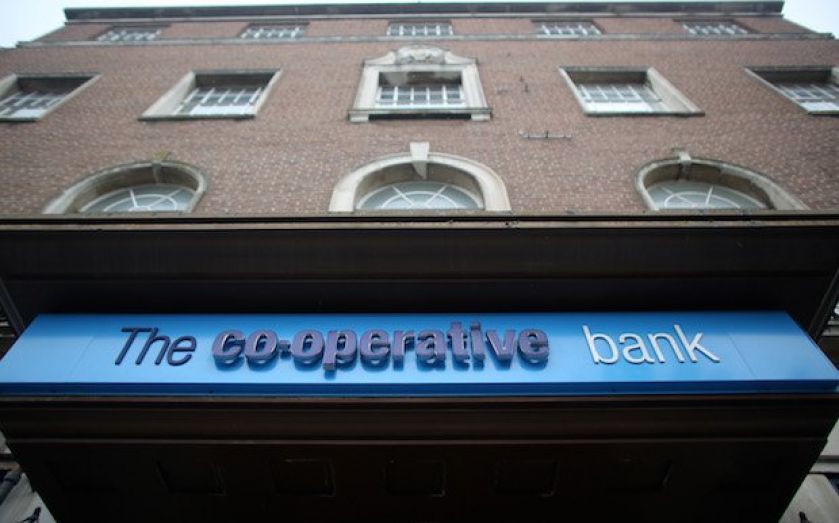Co-operative Bank to speed up toxic loans sell off after failing Bank of England stress tests

The Co-operative Bank was the only lender to fail the Bank of England’s stress tests yesterday. As a result, it is accelerating its plan to sell off or run down a £6.6bn book of bad loans from the pre-crash era.
Eight high street institutions’ finances were tested to see how they would cope with a hypothetical apocalyptic economic crash, in which house prices dive 35 per cent and unemployment soars to 12 per cent.
This means it was intensely focused on the UK-focused banks, rather than those with global operations.
Despite fears over the health of RBS and Lloyds in such a scenario, both banks scraped through. And when the authorities added in the cost-cutting measures the banks would implement, both passed comfortably.
“The results show that the core of the banking system is significantly more resilient, that it has the strength to continue to serve the real economy even in a severe stress, and that the growing confidence in the system is merited,” said Bank of England governor Mark Carney.
Lenders had to show the prudential regulation authority (PRA) that they would still have a core capital ratio of above 4.5 per cent in the scenario.
HSBC and Standard Chartered performed best – the banks have big overseas operations, and recorded capital buffers of above eight per cent each.
Barclays, Santander and Nationwide maintained ratios of 7.5 per cent, 7.9 per cent and 6.7 per cent respectively.
Lloyds’ ratio fell to 5.3 per cent and RBS’ to 5.2 per cent. Lloyds is safe from being ordered to do more as it is now building capital through profits, while RBS has already announced plans to issue bonds to raise funds.
But the Co-op more than used up its buffers in the test, falling to a ratio of minus 2.6 per cent. After nearly collapsing 18 months ago, it has already got a recovery plan in place.
But regulators ordered it to accelerate that plan yesterday, and the Co-op has hired Bank of America Merrill Lynch to help it sell off and run down its £6.6bn book of bad mortgage loans, inherited from the Britannia Building Society.